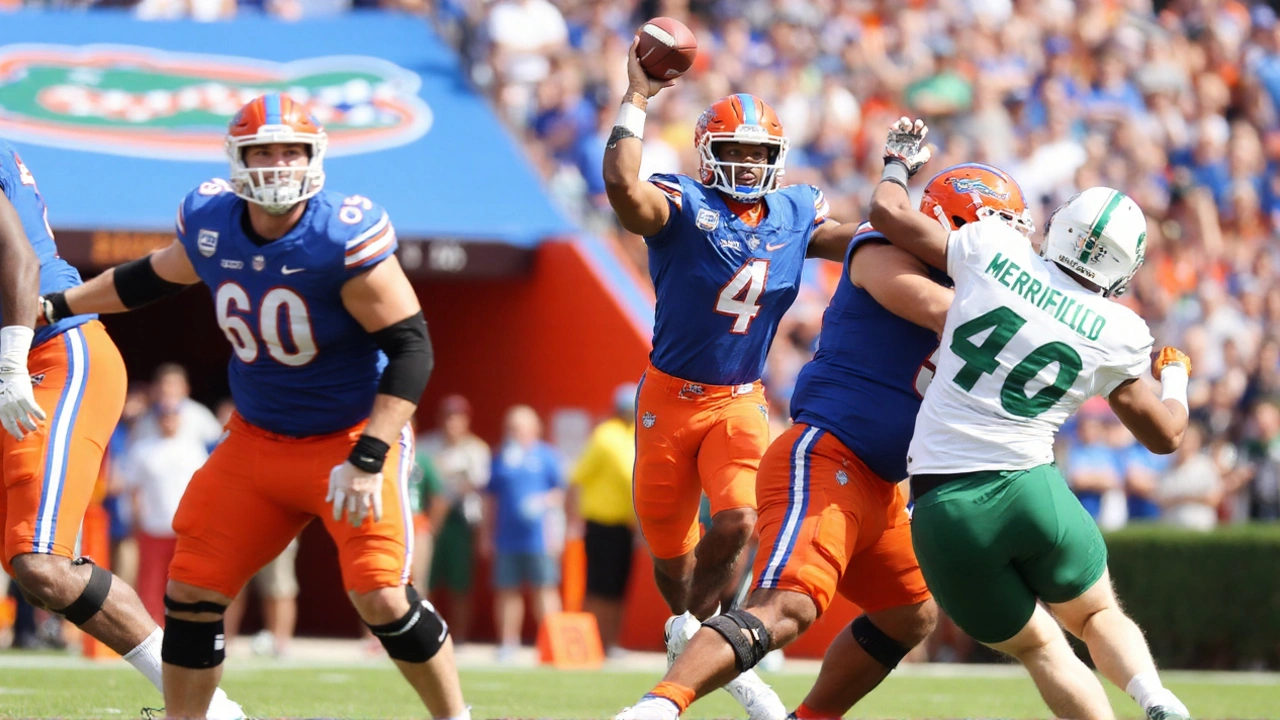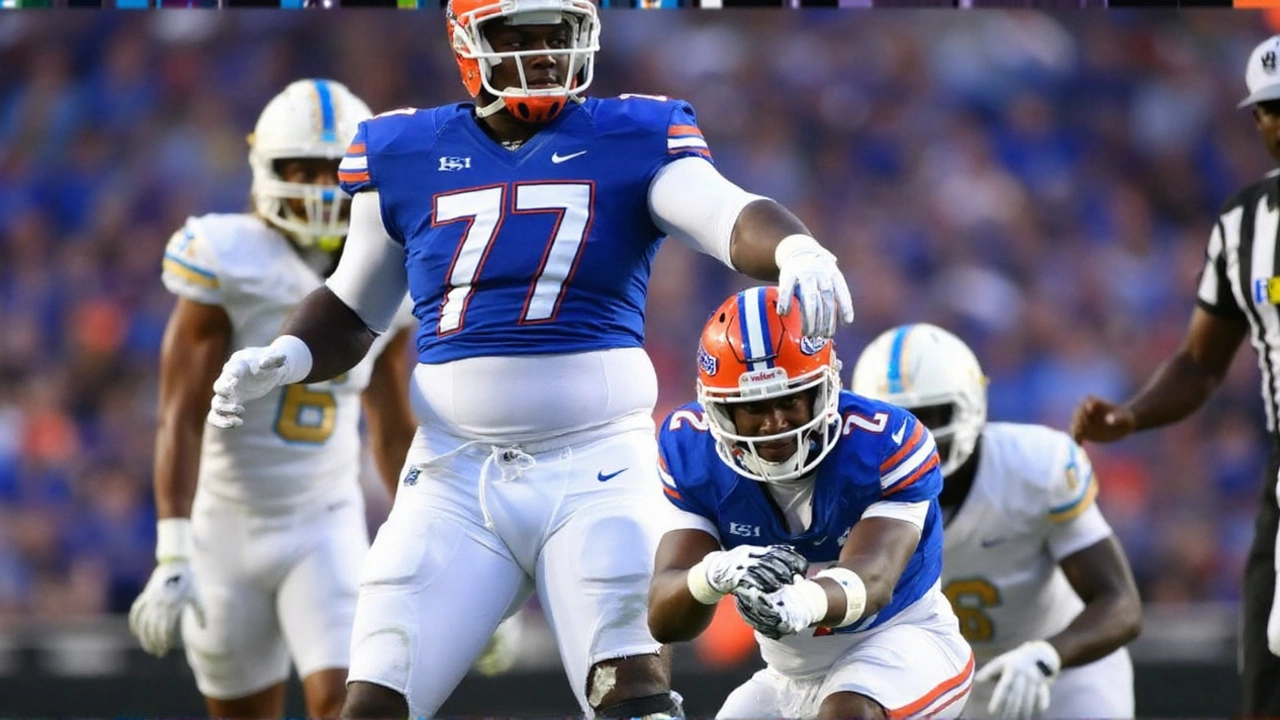A scoreboard that wouldn’t stop: South Florida 18, Florida 16
Thirty-four runs in one game. Ranked SEC team on the wrong end. That’s the kind of midweek mayhem that flips a season narrative for a night. South Florida beat No. 13 Florida 18–16, the kind of result that makes coaches reach for a whiteboard and fans reach for antacids.
High-scoring midweeks aren’t rare in college baseball. Teams protect their weekend aces, lean on developing arms, and stretch bullpen roles. When you add metal bats, hurried turnarounds, and sometimes breezy parks, you get innings that snowball. A box score like 18–16 usually points to free passes, defensive miscues, and a lineup that never lets an inning breathe.
Without the official play-by-play in front of us, we can still read the tea leaves. Games like this often hinge on three things: walks and HBPs that feed rallies, missed chances to end innings, and long at-bats that flip pitch counts early. Once a midweek staff gets pushed past its plan, you’re into matchup roulette. One tough hop or a two-out blooper can undo a carefully drawn pitching chart.
For Florida, the loss is a gut check. The Gators can bang with anyone, but you don’t want your offense carrying that load every Tuesday. A ranked team giving up 18 tends to spark questions about middle relief, late-inning command, and infield rhythm. Cleaning up the free 90s—walks, wild pitches, passed balls—usually comes first. If an SEC weekend is a chess match, midweek is Jenga. You can only pull so many blocks before the tower wobbles.
There’s also the math. Midweek games don’t define a season, but they do nibble at RPI and seeding. One loss won’t crater Florida’s resume; a string of them can. The SEC gauntlet provides chances to make it back in bulk. Still, hosting paths get smoother when you take care of business outside the league, especially against teams that will finish with winning records.
For South Florida, this is more than a headline. Beating a top-15 brand travels well in committee rooms and recruiting visits. It tells the clubhouse the plan holds up under pressure. When you score 18 on a ranked SEC staff, you’ve stacked quality at-bats, handled velocity, and capitalized on traffic. Even if the Bulls gave up 16, the takeaway is clear: the lineup can trade punches and win. That belief matters when the calendar flips to conference play and one-run margins decide weekends.
The program ripple is real. Wins like this help ticket sales, energize alumni, and buy patience for development choices. They also sharpen scouting reports—opponents will adjust how they pitch the top third of the order, and they’ll test the back end of the bullpen until it proves steady.
Coaching angles are straightforward. Florida’s Kevin O’Sullivan has built his reputation on elite pitching plans and steady defense; a game like this becomes film-room fuel. Expect shuffles in midweek roles, tighter strike-zone plans early in counts, and a hard look at bunt coverages and double-play feeds. On the other side, USF’s Billy Mohl will bottle what worked—patient approaches, situational hitting, and pressure on the bases. If the Bulls drew traffic with walks, they’ll aim to repeat that with disciplined first-pitch takes and zone hunting.
A quick word on the confusion some fans had: if you went searching for a Florida–USF football preview about stopping quarterback Byrum Brown and landed here, you weren’t imagining it. That preview wasn’t available; instead, the result popping up was this baseball upset. Different sport, same schools, very different night.
What changes after a score like 18–16? Not everything. Florida’s ceiling is still high, and its weekend rotation will dictate the season more than any Tuesday will. But there’s urgency to settle the bridge innings and clean up the little things that turn three-run frames into six. For USF, the assignment is to convert the emotional spike into repeatable habits—win the zone, win 90 feet at a time, and keep the defense from giving runs back.
- Midweek chaos is normal, but ranked teams don’t want it becoming a pattern.
- Florida needs sharper strike throwing from the middle relief crew and a tidier infield night.
- USF’s lineup depth showed up; carrying that into conference play is the next test.
- RPI and seeding won’t swing on one game, yet results like this stick on a resume.

What it means now—and what to watch next
For Florida: the fix starts with tempo on the mound. Get ahead, expand late, and reduce the free baserunners. If the staff can lock in the seventh through ninth on Tuesdays, the offense won’t feel forced to win 12–10 every time out. Expect a few experimental looks—openers, matchup relievers, or a freshman with a defined one-inning job—until something clicks.
For South Florida: success leaves clues. If the Bulls built innings through patience, stay stubborn about the strike zone. If they cashed in with two outs, keep the two-strike approach simple and short. And if the defense bent, tighten the fundamentals so a big win doesn’t get diluted by a sloppy weekend.
Postseason talk can wait, but stakes are clear. Florida wants to protect national-seed possibilities by stacking clean midweeks and holding serve in the SEC. USF wants to turn a marquee scalp into momentum through their conference slate and into May. The scoreboard says 18–16; the next box scores will tell us whether it was a one-night firework show or the start of a trend.

Write a comment